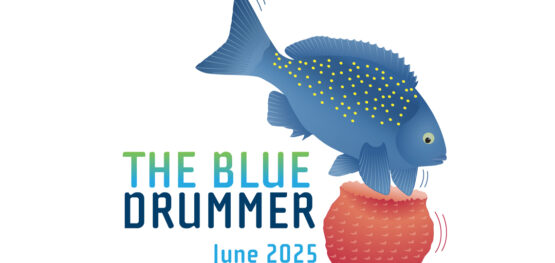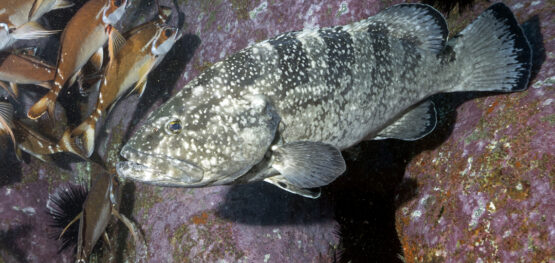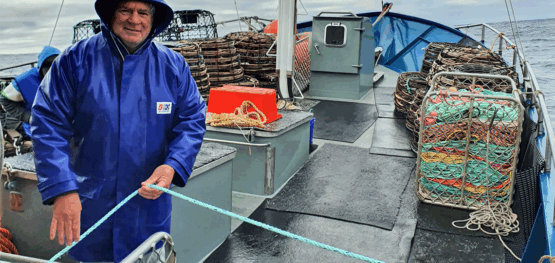Article
19 June 2024
Effective data management is pivotal to ensuring the longevity, utility and accessibility of scientific data. The Marine and Coastal Hub follows FAIR (Findable, Accessible, Interoperable, and Reusable) data management principles to ensure the data generated by hub projects is optimised for research, policy-making, and conservation.
Members of the international research community developed FAIR data principles in 2016 to enhance the reusability of research data. The principles require data to be easily located, readily accessible, compatible with other data systems, and sufficiently documented for future use. The Marine and Coastal Hub data management strategy provides a framework for how these principles are applied by the hub and hub researchers.
Findable
To make data findable, the hub uses international community-endorsed metadata standards and Persistent Identifiers. Each dataset is accompanied by comprehensive metadata that includes a description of the purpose, context, and content of the data; research and taxonomic keywords; and provenance information. This documentation allows researchers to locate relevant data efficiently and assess whether it is suitable for their purposes. The use of Digital Object Identifiers (DOIs) ensures that data remains traceable and citable, enhancing the transparency and reliability of marine and coastal research. Furthermore, all data (via metadata records) are aggregated to the Australian Ocean Data Network (AODN) and Research Data Australia national information repositories to maximise discoverability and access.
Accessible
Accessibility is another cornerstone of the hub data management strategy. The hub ensures that data is stored in repositories that comply with open-access policies. Where suitable, the use of relevant thematic data repositories meeting these access requirements is encouraged as part of the hub's commitment to a federated data network supporting the needs of diverse stakeholders. The eAtlas and the Institute for Marine and Antarctic Studies (UTAS) data repositories provide additional support for hub data that may not have a suitable thematic host, and are managed by the hub data wranglers, Dr Eric Lawrey and Dr Emma Flukes. Protocols for data access are clearly defined, and data is stored in formats that can be easily downloaded and used by researchers globally.
Interoperable
Interoperability is achieved through adherence to standard data formats and protocols, facilitating programmatic access and seamless integration with other datasets. The hub uses common data standards, enabling data from different sources to be combined and compared.
Reusable
For data to be reusable, it must be well-documented and annotated, ensuring that future researchers can understand and utilise it effectively. The Hub emphasises the importance of detailed metadata, clear licensing, and data provenance. Furthermore, the hub data wranglers discuss data management with project leaders throughout the project. A comprehensive and practical set of recommendations is offered in the “Marine and Coastal Hub data management guide for researchers”. By providing thorough documentation and usage guidelines, the hub ensures that data can be applied to new research questions, maximising its scientific value.
CARE principles
In addition to the FAIR principles, the hub is committed to managing sensitive data respectfully, particularly when it concerns Indigenous Knowledge. The hub requires adherence to the CARE principles (Collective benefit, Authority to control, Responsibility, and Ethics) which provide a framework for handling Indigenous data respectfully and ethically. The CARE principles complement the existing FAIR principles and ensure that data is managed in a way that respects Indigenous Knowledge and sovereignty.
The concept of Indigenous Cultural and Intellectual Property (ICIP) is integral to this process. ICIP rights protect the traditional knowledge and cultural expressions of Indigenous communities. This includes all aspects of cultural heritage, from languages and symbols to environmental knowledge and art. Hub data management practices include obtaining informed consent, ensuring appropriate data governance, and involving Traditional Owners in decision-making processes related to their data. By doing so, the hub ensures that Traditional Owners' rights are upheld and their knowledge is respected.
In summary, the Marine and Coastal Hub’s commitment to the FAIR and CARE principles exemplifies best practices in data management. This approach ensures that datasets managed by the Hub are optimised for future use while also upholding the ethical stewardship of Indigenous Knowledge.
Further information
- FAIR Principles for Research Data (Australian Research Data Commons)
- CARE Principles for Indigenous data governance
- Marine and Coastal Hub data
- Discover Marine and Coastal Hub data on the Australian Ocean Data Network
- Discover Marine and Coastal Hub data on Research Data Australia
- Visualise select Marine and Coastal Hub data on eAtlas
- Visualise select Marine and Coastal Hub data on Seamap Australia





